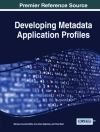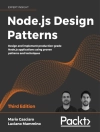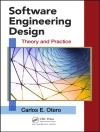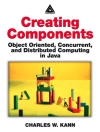The use of information and communication technologies to support public administrations, governments and decision makers has been recorded for more than 20 years and dubbed e-Government. Moving towards open governance roadmaps worldwide, electronic participation and citizen engagement stand out as a new domain, important both for decision makers and citizens; and over the last decade, there have been a variety of related pilot projects and innovative approaches.
With contributions from leading researchers, Charalabidis and Koussouris provide the latest research findings such as theoretical foundations, principles, methodologies, architectures, technical frameworks, cases and lessons learnt within the domain of open, collaborative governance and online citizen engagement. The book is divided into three sections: Section one, “Public Policy Debate Foundations, ” lays the foundations regarding processes and methods for scoping, planning, evaluating and transforming citizen engagement. The second section, “Information and Communication Technologies for Citizen Participation, ” details practical approaches to designing and creating collaborative governance infrastructures and citizen participation for businesses and administrations. Lastly, the third section on “Future Research Directions of Open, Collaborative ICT-enabled Governance” provides a constructive critique of the developments in the past and presents prospects regarding future challenges and research directions.
The book is mainly written for academic researchers and graduate students working in the computer, social, political and management sciences. Its audience includes researchers and practitioners in e-Governance, public administration officials, policy and decision makers at the local, national and international level engaged in the design and creation of policies and services, and ICT professionals engaged in e-Governance and policy modelling projects andsolutions.
قائمة المحتويات
Section I – Public Policy Debate Foundations: Processes and Methods for Scoping, Planning, Evaluating and Transforming Citizen Engagement.- Democratic Legitimacy and Recruitment Strategies in e Participation Projects.- Collaboration for Open Innovation Processes in Public Administrations.- An Integrated Methodology for the Evaluation of e Petitions.- Assessing a Measurement Model for Digital Political Participation: A Multidisciplinary Point of View.- Online Engagement from the Grassroots: Reflecting on over a Decade of e Petitioning Experience in Europe and the UK.- Evaluating e Participation Projects and Lessons Learnt.- Section II – Information and Communication Technologies for Citizen Participation.- Knowing the Law as a Pre-Requisite to Participative e Government: the Role of Semantic Technologies.- Regional Participation Model to Engage Citizens in Distant Decision Making.- Visualisation of Online Discussion Forums.- Distributed Discussion: An Integrated e Participation Model for Engaging Young People in Technology Policy.- Open Collaboration in Policy Development: Concept and Architecture to Integrate Scenario Development and Formal Policy Modelling.- Section III – Future Research Directions of Open, Collaborative ICT-enabled Governance.- ICT as the Facilitator of Postmodern and Empowered Forms of Citizenship – Myth or Reality?.- A Critical Analysis of EU-Funded e Participation.- ICT for Governance and Policy Modelling: Visionary Directions and Research Paths.
عن المؤلف
Yannis Charalabidis is an assistant professor at the University of the Aegean, in the area of e-Governance information systems, coordinating policy making, research and pilot application projects for governments and enterprises worldwide. Over the last 15 years he has been the coordinator or technical leader in numerous European and national research projects in the areas of e-Business and e-Governance. In addition, Yannis is a contributing member in several standardisation and technology policy committees. He publishes and teaches on government service systems, enterprise interoperability, government transformation and citizen participation; and he was the Best Paper Award winner of the EGOV 2008 Conference, Best e-Government Paper Nominee in the 42nd HICSS Conference, and 1st Prize Nominee in the 2009 European e-Government Awards.Sotirios Koussouris holds a Ph D in information systems and business process management and an MBA in techno-economic systems. He has over seven years of experience in information systems and telecommunication technologies with special skills in areas like e-Government technologies and applications, e-Participation, social media, and business process modelling. Over the last years, he has worked on numerous European and national projects on e-Government and e-Participation; and has published extensively on these topics in international journals and at conferences.












